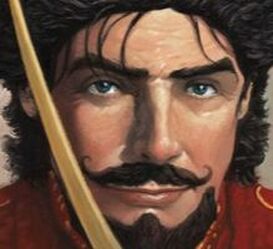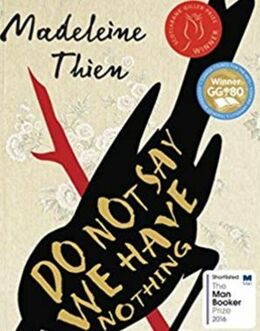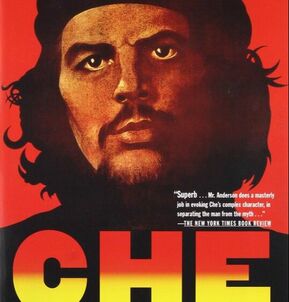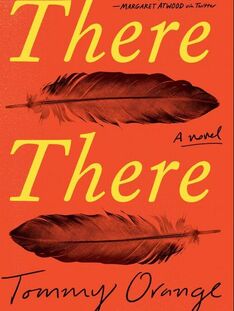Silver Wordsmith: An author's journey |
 How can you not read a book in which Santa looks like this? Credit: William Joyce How can you not read a book in which Santa looks like this? Credit: William Joyce Those of you who have been following this blog for a bit know that I’m still trying to figure out how best to use this resource. Which made me consider that even though I have expressed how important I think reading is for a writer, I haven’t said much about what I personally read. So I thought this would be a perfect opportunity to share, and given that it’s still early in the year, and I have already expressed how obsessed Russians are with their New Year’s stuff, I would put together a “Best of” list for 2018. To start with a disclaimer, I want to say that due to work and home commitments, 2018 has been my worst reading year in about five years, so I won’t provide my embarrassingly short list of everything consumed and will try to conceal it as best as I can. I’m also one of those people who doesn’t care to distinguish between audiobook and written text. Sure, you’re technically not “reading” but you’re still consuming stories in a way that’s closer to reading than say, observing drama or television, so I think it counts. Having said that, I probably won’t be mentioning below which is which unless it’s relevant to my feelings on the book. Anyway, without further preamble, here are some of the top books I’ve read in 2018: Most Fun Kingkiller Chronicle Day Two: The Wise Man’s Fear by Patrick Rothfuss. Earlier this summer I joined the legions of fans who are patiently waiting for the next book in the Kingkiller Chronicle saga. Fortunately, since my entry into this club is fresh, I am yet to join the other legions who are impatiently waiting for next one to come out. Either way, after taking several years to go through all the Song of Ice and Fire books, Kingkiller Chronicle is a refreshing read that doesn’t dwell on the doom and gloom. The world and character building is so detailed, however, that the pace of the books makes me think they need about 20 books and 200 years to finish. That said, despite the fact that I got myself into this fandom mess, I loved listening to this during my morning bike rides and runs. And knowing that Lin-Manuel Miranda is involved in an adaptation makes me all sorts of giddy for many reasons. Honourable Mention: Nicholas St. North by Laura Geringer and William Joyce. Ever just see a book in a store and then tell your friends how ridiculous you thought it looked and they bought it for you for your birthday because they knew you secretly really wanted it? Well that’s how this children’s novel came into my possession and I’m so glad it did. It’s the adventures of young Santa Claus in the days that he could be described as a “ruffian” and a “thief”. How could you not want to read this? It’s the first book in the whole Guardians of Childhood series and I’m not sure I’ll be picking up any of the sequels, but at the same time I had fun with the ridiculous premise and jaunty execution. Could have foregone a full two-page spread crapping all over my ancestors, but that’s beside the point. The Book was Better Altered Carbon by Richard K. Morgan. This was one I listened to on Audible and I think the experience was enhanced by Todd McLaren’s gruff narration of this hard-boiled detective novel placed in a sci-fi setting with excellent worldbuilding. The core concept of the novel, where human consciousness can be transferred to a variety of physical bodies, or “sleeves” thereby creating near-immortality, is taken to some very interesting places by Morgan. The Netflix adaptation, which I still think is a decent piece of television, tries to both condense and expand on parts of the story with varying effects. Overall I think the changes in the adaptation lead to a more sloppy plot with holes and inconsistencies, so I would recommend giving the book a try first.  This book racked up some serious accolades but really it was some high-level torture of the soul This book racked up some serious accolades but really it was some high-level torture of the soul That Was Fun but Let’s Not Do This Again The Stone Raft by Jose Saramago. Once upon a time, sometime in undergrad, I set myself a goal of sampling the work of each winner of the Nobel Prize for Literature. What I was doing making such lofty goals when I couldn’t even keep up with the assigned reading in my English classes I’ll never know, but more than a decade later I’ve just cracked 25%. The thing about winners of the Nobel Prize, is that it the Prize itself has been criticized for picking obscure winners that are less than accessible to the general public. I’ve found my experience to be a mixed bag – I absolutely fell in love with the poetry of Tomas Transtromer but getting through Mo Yan’s Republic of Wine felt a big like running an uphill marathon drunk. Stone Raft, by 1998 winner Jose Saramago would fall somewhere in the middle of this scale. On the one hand, I quite enjoyed all the satire that grew out of the Iberian Peninsula’s sudden break-off and drifting out to sea, as it took digs at tourism, international and local politics and nationalism. On the other hand, his paragraph-long sentences and dialogue structure that’s presented in a single sentence with only commas indicating a change of speaker, was a challenge to say the least. Not to mention the multiple references to outdated gender norms which may or may not have been part of the satire but sometimes it’s hard to tell, you know. In the end, it was a book I was glad I had read. I don’t believe I’ve read anything by a Portuguese writer before, and it was nice to dive back into some magical realism while I myself am somewhat exploring the genre. Honourable mention: Do Not Say We Have Nothing by Madeleine Thien. First off, this was an excellently written and deeply powerful novel with intricate characters that really brought the pain of their time to the surface. Well deserving of the Scotiabank Giller Prize that Thien won in 2016. So what exactly is my beef with it? The Cultural Revolution is downright terrifying. The ability of humans to turn on their neighbours, friends and even family in the name of survival is nearly limitless. And governments built on ideology, greed and a thirst for power can exploit that ability with frightening efficiency. So much of our western media, and particularly a relatively recent wave of young adult novels, portrays the eventual triumph over oppressive regimes. But if you want to read about hope dying under the treads of a tank, read Do Not Say We Have Nothing. For me, I’m going to take a short break from the bleakness of reality.  I've spent more than a year discretely hiding this very in-your-face cover on the bus. Though it was a university bus so I probably fit right in. I've spent more than a year discretely hiding this very in-your-face cover on the bus. Though it was a university bus so I probably fit right in. Most Influential Che: A Revolutionary Life by Jon Anderson. Yes, probably the most “wtf” entry here. I’ve had a fascination with Cuba ever since I was a little kid, having visited a couple of times while my grandparents were stationed there during Soviet times (yeah, a whoooole many more stories coming out of this that I’ll save for later). So as part of my education on the subject I wanted to know a bit more about the Cuban Revolution’s most far-reaching figure. Some paint him as the devil, others as a saint, and I wanted a book that can do a good job of showing me where the middle was. Ultimately, the safest word you can use to describe Guevara is “complicated”. He led a fairly inauspicious life that blew up to global significance within a few short years. He somehow possessed a poetic love for humanity while also being completely numb to the value of individual lives when they face off against his political ideals. He managed somehow to both be a visionary and someone who often went way in over his head which resulted in disastrous consequences for millions of people. As you can see, there’s lots of aspects of Guevara that can be picked apart into various fictional characters, and I’ve already begun the process with some of my works in progress. So at least in that respect I’m glad I read this. As an aside, reading this book on and off over the last year also made me realize how important reading fiction is to my writing, and you can read more about that here. Honouable Mention: Alexander Hamilton by Ron Chernow. The really influential thing here is actually the Hamilton musical, but I think Chernow’s voluminous biography rounded out that experience quite nicely.  Just go and read it, you won't regret it. Just go and read it, you won't regret it. Best Book of 2018 There There by Tommy Orange. For a few years now I’ve attended the Vancouver Writers Festival. Not only does it encourage me to buy books I normally wouldn’t have picked up, but also sometimes I buy a gem like this one. It’s been a while since I read anything that felt like a true page-turner for me, probably The Golden Compass, but this one I was just hooked. The interconnected stories of Native American characters living around the Oakland area pulled me in and wouldn’t let go. It was such a richly varied cast that it made me feel almost as though I was there, observing both the struggles with things like depression but also the hope that is built from family and community. The novel of course touched on sensitive issues that I can’t even begin to understand, lacking the perspective being a non-white minority as well as the original settlers of the land upon which white settlers built their country. We face very similar but somewhat different issues in Canada and our own Indigenous population is probably the most marginalized in our society. Admittedly, I’ve been on my own slow journey to understanding that is still far from complete, but I’m glad for books like this because they showcase how important novels are in changing the world.
0 Comments
Leave a Reply. |
Michael SerebriakovMichael is a husband, father of three, lawyer, writer, and looking for that first big leap into publishing. All opinions are author's own. StoriesUrsa Major Categories
All
Archives
January 2024
|
Proudly powered by Weebly
 RSS Feed
RSS Feed